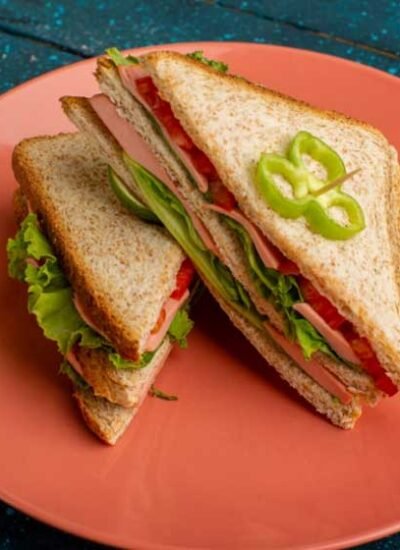Every office has its theories about productivity. Some swear by standing desks. Others by motivational quotes printed in Helvetica. But let’s be honest. None of that does what one well-timed sandwich can do.
People don’t need more “hustle culture.” They need lunch. A real one. With bread that didn’t come from a vending machine.
The Office Feeds on Food, Not Inspiration
No one’s showing up for your “Monday Motivation” Slack post. They’re showing up for the free bagels in the break room. You can talk all you want about collaboration, synergy, innovation, but if there’s decent catering, suddenly everyone’s a team player.
Food is the great corporate equalizer. Executives, interns, the guy who’s always “working from home” but mysteriously appears for lunch, everyone’s on the same page when sandwiches hit the table.
That’s not laziness. That’s biology.
The Modern Office Is Just Controlled Hunger
Most people are one skipped lunch away from quitting. The average worker runs on caffeine, crumbs, and silent rage. They don’t need another meeting about engagement. They need sustenance.
Yet somehow, companies will spend thousands on “team building” exercises before realizing a catered lunch does the same thing for half the cost and none of the awkward trust falls.
If you really want to boost morale, start feeding people like you actually want them to stay.
What Good Catering Does to a Workplace
Here’s what happens when the food’s actually good:
- People talk more. Not in a forced icebreaker way, but like normal humans.
- Meetings run smoother because no one’s secretly fantasizing about escape.
- The office smells like optimism for once.
- Suddenly, everyone remembers why they liked working there.
The secret to productivity isn’t mindfulness or performance metrics. It’s sandwiches. Good ones. Made by people who know what they’re doing.
The Sandwich Effect
There’s something oddly powerful about the right sandwich. It’s comfort disguised as convenience. It tells people, “We thought about you,” which, in corporate terms, is practically poetry.
A well-made sandwich can fix almost anything: a bad morning, an awkward meeting, even mild resentment toward management.
You don’t need another productivity app. You need carbs with a side of respect.
Why the Free Lunch Still Works
Somewhere along the line, the concept of free food at work became cliché, like bean bags and buzzwords. But it’s still the oldest and most reliable form of motivation there is.
People remember who feeds them. It’s primal.
Companies think culture is about values. Employees know it’s about snacks. That’s not cynicism. That’s survival instinct.
The Math of Morale
Let’s break it down like an accountant who’s also hungry.
Scenario 1: No catering.
You get:
- 3 PM slumps
- Passive-aggressive sighs
- People eating granola bars that expired last quarter
Scenario 2: Professional catering.
You get:
- Full stomachs
- Better focus
- Conversations that don’t sound like cries for help
Productivity isn’t measured in KPIs. It’s measured in how long people can keep pretending they like spreadsheets without collapsing.
Why “Just Order Pizza” Doesn’t Cut It Anymore
Pizza was fine when everyone was twenty-two and happy to be employed. But in a post-pandemic world, where everyone’s relearning how to be around people, the bar is higher.
Modern catering needs to feel intentional. Fresh ingredients. Variety. Something that makes people feel like they’re being taken care of, not managed.
It’s not about feeding people. It’s about signaling, “We get it. Work is hard. Eat something.”
What Great Corporate Catering Looks Like
The best catering isn’t fancy. It’s thoughtful. It balances indulgence with function, food that keeps people alert, not sleepy.
Signs of a strong catering game:
- Menu options that don’t start with “mystery”
- Enough vegetarian choices so no one feels like a burden
- Coffee that tastes like coffee, not regret
- Clean-up handled by someone else
The only thing worse than a bad meeting is having to scrape dip off a conference table afterward.
Sandwiches as Strategy
Let’s call it what it is! workplace manipulation, but the good kind. When employees are fed well, they associate the company with care. When they’re not, they associate it with hunger and resentment.
It’s Pavlovian conditioning with a catering invoice.
And it works. Because people remember experiences tied to comfort. A sandwich isn’t just a sandwich. It’s a reason to stay in the room.
How Food Actually Fuels Ideas
When people eat together, they relax. When they relax, they talk. And when they talk, useful things accidentally happen, like innovation, or at least mild cooperation.
A catered lunch isn’t downtime. It’s disguised productivity. It gives people room to be human, and humans are better at problem-solving than hungry machines.
The Psychological ROI
Feeding employees isn’t just about avoiding complaints. It’s about shaping perception. When you provide quality meals, people subconsciously rate the entire company higher. Even unrelated aspects like communication, leadership, and job satisfaction.
You’re not just filling stomachs. You’re managing mood.
And in a world where burnout is a national pastime, mood management is half the job.
Why Leadership Should Be Hungry Too
You can tell a lot about a manager by how they treat food at work. The good ones eat last. The great ones eat with everyone else. Food is social glue. It’s the rare moment where hierarchy doesn’t matter because everyone’s chewing.
Corporate catering creates that middle ground. The shared table moment where people stop performing their job titles and just exist.
That’s when the best ideas happen. Not during brainstorms, but between bites.
Beyond the Sandwich
Modern corporate catering services have evolved past the classic lunchbox model. They bring variety: hot meals, fresh salads, small plates that feel intentional, coffee that keeps meetings civil. The specific menu matters less than the message — “we thought about what you need to get through the day.”
Whether it’s sandwiches, soups, or something plated with actual silverware, the idea stays the same. Feed people well, and they’ll work better.
Because at the end of the day, no one remembers the PowerPoint. They remember the food.





Leave a Reply